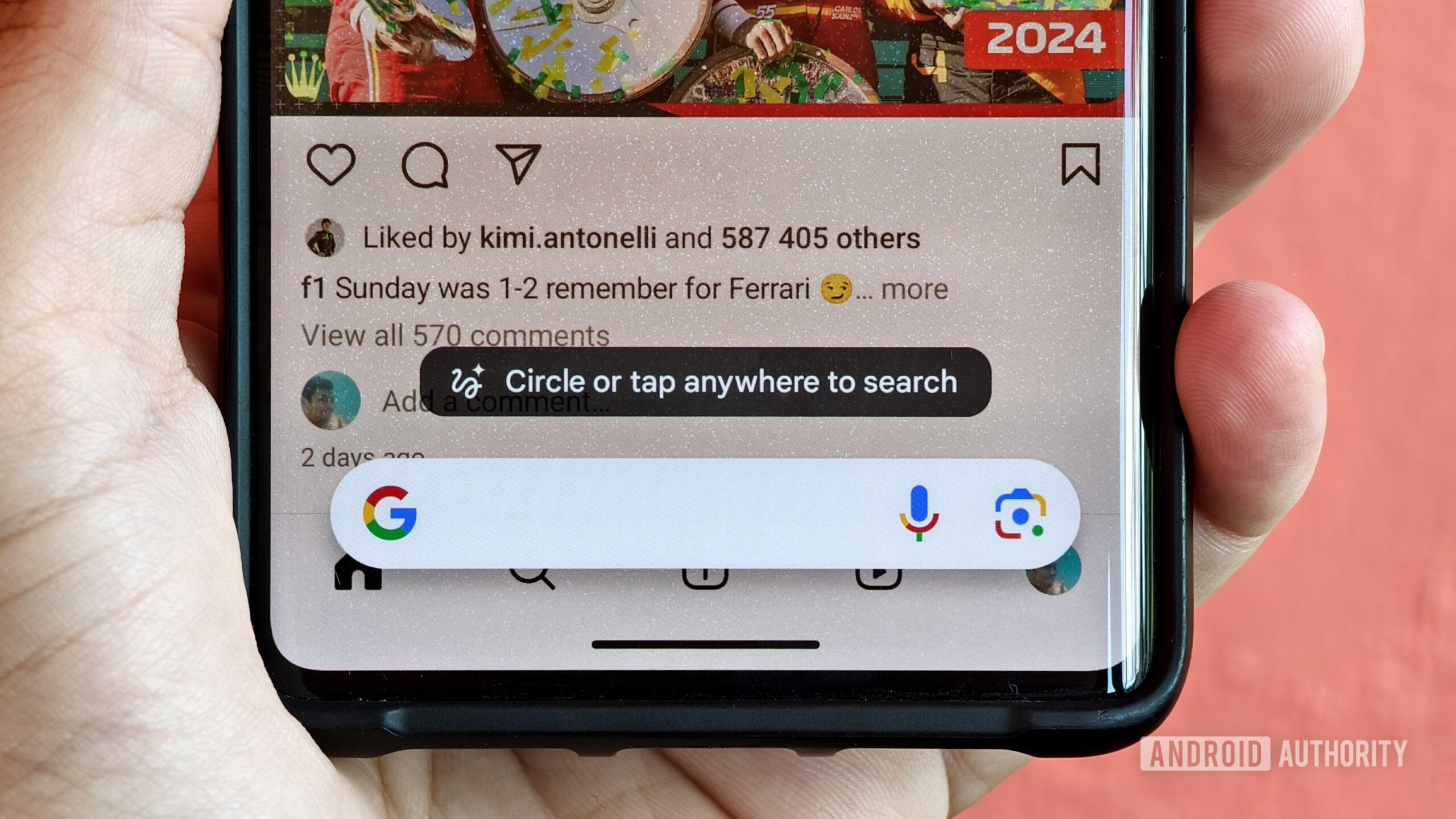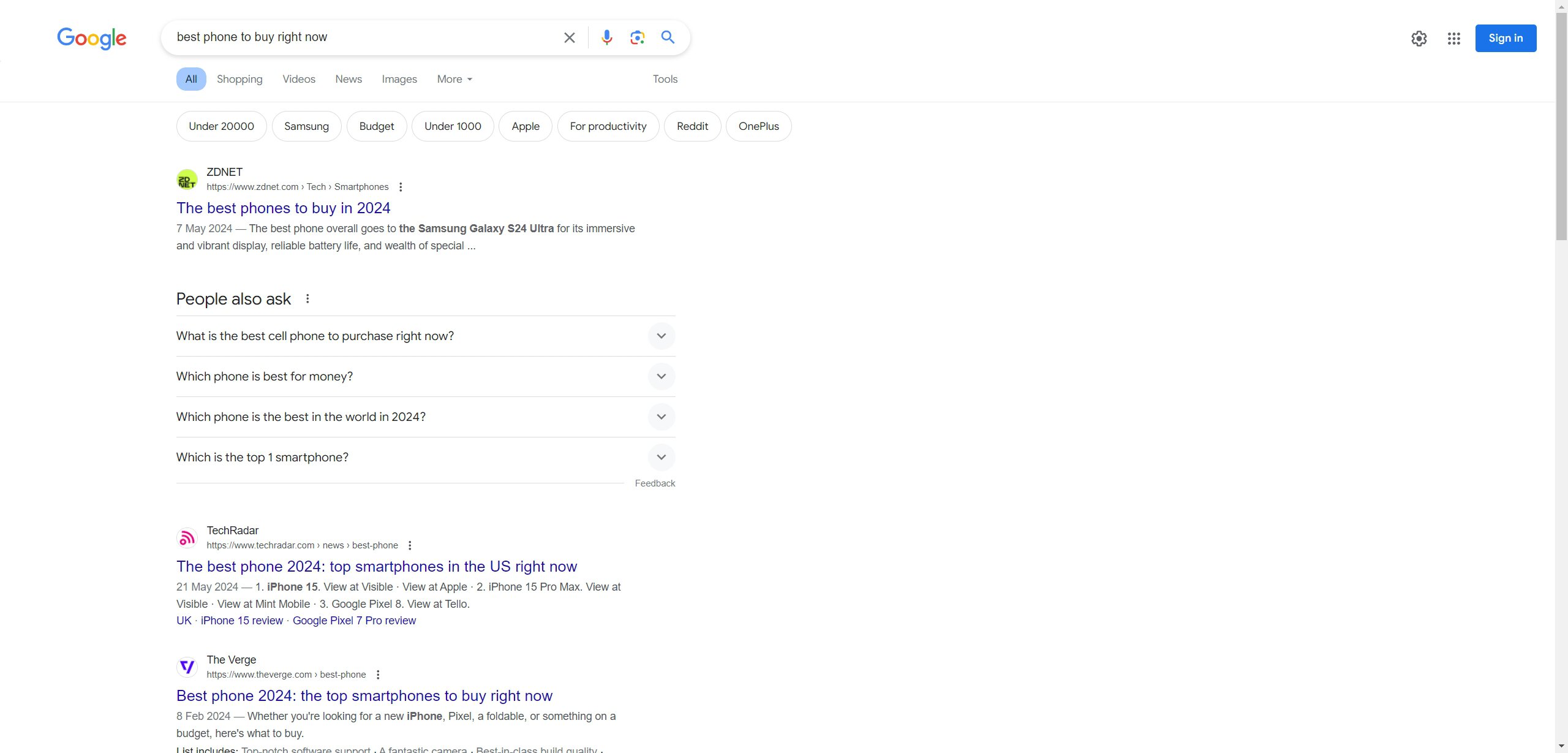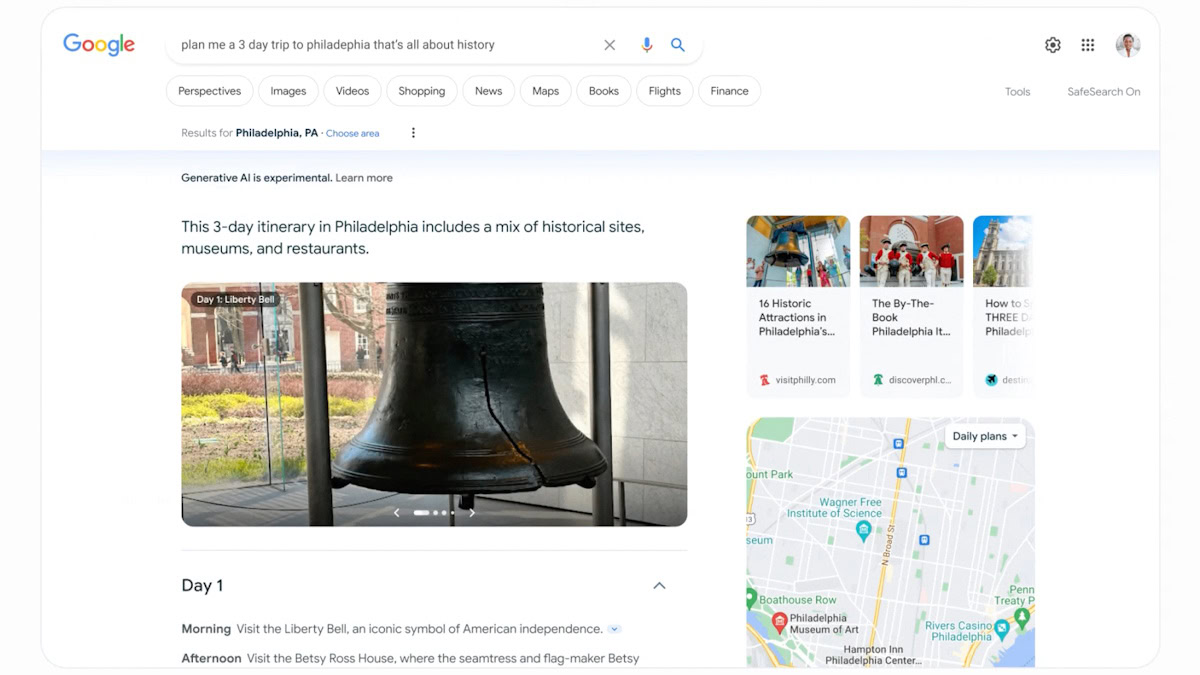
Robert Triggs / Android Authority
TL;DR
- Lots of the rating elements concerned in Google Search’s super-secret algorithm have purportedly leaked.
- This leak sheds mild on how Google Search seemingly operates and which attributes it makes use of to rank content material on the Search Engine Outcomes Web page.
- Nonetheless, the findings from the leaked doc don’t align with Google’s statements on these matters over time.
Replace: Might 30, 2024 (12:22 AM ET): In an announcement shared with The Verge, Google has confirmed in a roundabout manner that the leaked paperwork are actual, albeit they may very well be outdated or incomplete.
We’d warning in opposition to making inaccurate assumptions about Search primarily based on out-of-context, outdated, or incomplete info. We’ve shared intensive details about how Search works and the varieties of elements that our programs weigh, whereas additionally working to guard the integrity of our outcomes from manipulation.
Authentic article: Might 29, 2024 (04:12 AM ET): Earlier than Google jumped in deep with AI Overviews and Search Generative Expertise, it banked extraordinarily closely on serving customers search queries via the standard Google Search outcomes we all know. Nonetheless, rather a lot goes on behind the scenes in answering such shopper search queries. Google has saved its search engine rating secret sauce near its coronary heart and has all the time as a substitute offered greatest practices to information web sites. Now, a leak claims to have unraveled the reality behind Google’s extremely coveted Search algorithm, and in lots of methods, it showcases how the corporate’s steerage doesn’t match what it seemingly checks for.
The information: Google’s Search algorithm has purportedly leaked
SparkToro claims to have accessed greater than 2,500 pages of API documentation that originate from Google’s inside “Content material API Warehouse.”
The report mentions that the documentation was inadvertently leaked on GitHub in March 2024 however then eliminated. Nonetheless, you’ll be able to spot copies of v0.4.0 and v0.5.0 of google_api_content_warehouse on Hexdocs (we at Android Authority are unable to confirm the authenticity of those leaked paperwork, so reader discretion is suggested).
The documentation seems to be a part of Google Search’s secret sauce, aka the algorithm. It doesn’t straight present the burden that Search’s rating system assigns to totally different traits of an internet site or its content material, but it surely does present the small print that Google collects from web sites and net pages. The preliminary report then collaborates with iPullRank to investigate the purported APIs.
This leak is virtually probably the most important perception ever into how Google Search truly works. Surprisingly, it additionally contradicts a lot of what Google has publicly said. To understand what’s improper, we’ll have to take a look at Google Search’s behind-the-scenes workings.
The background: What occurs behind the scenes if you Google Search?

Hadlee Simons / Android Authority
A Google Search question might appear to be an harmless and inconsequential motion to a shopper such as you, however it’s oiling the wheels of a multi-million greenback business. So, to know the gravity of the leak, it’s essential to know what occurs if you do a Google Search.
The fundamentals: Serps, net crawling, net indexing, and rating search outcomes
When customers have questions that they need answered on the web, they strategy an internet site referred to as a “search engine.” They enter a question for the search engine to search for, and the search engine presents them with a solution that hopefully solutions their query. Easy, proper?
On the again of it, the search engine does lots of work, however it may be damaged down into three foremost duties:
- Crawling: A search engine must know the whole thing of the web’s knowledge to search out out who’s answering what and what’s answered the place. For this, a search engine “crawls” all the web, i.e., it visits each single web site and webpage.
- Indexing: The pages the crawler has visited are analyzed for his or her knowledge and content material, and this info is saved in an easy-to-retrieve method.
- Rating: Since lots of and 1000’s of internet sites are attempting to reply the identical question, there must be a system that showcases who’s offered first to the person. That is generally known as a rating system. Probably the most seen type of it’s the place on which an internet site seems on a search engine outcome web page (SERP).
The rating system decides who’s positioned within the first spot, who’s positioned on the primary web page, which combos of search phrases their particular articles land, and so forth.
Why does rating matter on Google Search or any search engine?
Google Search (or just Google) is the biggest search engine on the earth, controlling the overwhelming majority of the search visitors that routes via the web. Simply go forward and rely the variety of search queries you run in an atypical day or week and multiply that by billions of individuals worldwide. Out of the blue, you’ll be able to see why serps are sometimes referred to as the visitors indicators of the web, as they’ve the ability to route huge web visitors down your web highway in case you do issues proper.
There’s insane potential to earn cash for what you are promoting if and if you sit on the first place of a well-liked SERP. Most customers solely click on on the primary outcome, and visitors influx dries down additional down the listing by many magnitudes.

Aamir Siddiqui / Android Authority
Do you recall the final time you scrolled on Google Search and clicked on the second, third, fourth, or fifth outcome? You solely try this when the primary outcome doesn’t fulfill you, and as a rule, you’d be altering and refining your search question earlier than you even undergo all the outcomes on the primary web page of Google Search.
Do you recall the final time you went to web page two of a Google Search outcome? You truly gained’t, as Google has eliminated pagination and opted for a steady scroll for Search. However the reality is that almost all customers don’t transcend the primary handful of solutions. They’re both glad or have modified their question.
Google’s secret sauce: The Google Search algorithm

So, there’s lots of strain to do issues proper. However how do you do issues proper?
It could be good to take a look at Google’s rating system, aka the Google Search algorithm. That manner, web sites can do precisely what Google is on the lookout for. They will then persistently rank on the prime of search queries, get billions of views, and make tens of millions of {dollars}.
However the issue can also be the identical: everybody would know what Google is on the lookout for, and since tens of millions of {dollars} of advert and affiliate income could be at stake, they might have a really robust incentive to recreation the outcomes to the detriment of end-user expertise.
Till just lately, most of us would agree that as customers, Google Search has been our major technique of discovering new info on-line. No matter Google has been doing with its secret sauce has been working.
Google’s public recipe: E-E-A-T tips for people-first content material
As an alternative of straight publishing its secret sauce, Google publishes a public recipe within the type of content material tips for web sites like ours to comply with once we publish our content material.
There’s lots of depth to them constructed up over time, however Google has all the time strongly suggested creating “people-first content material,” aka content material for finish customers, as a substitute of content material for a search engine. Google needs you to go away the heavy lifting of rating to the Search algorithm and simply deal with creating content material that demonstrates elements of expertise, experience, authoritativeness, and trustworthiness, or E-E-A-T.
Google preaches creating content material for individuals and never for serps. The business operates in any other case for apparent causes.
The thought is that in case you comply with EEAT, Google Search can have a better time figuring out your content material pretty much as good content material and rating it accordingly. It’s not the precise, direct secret sauce, but it surely’s your greatest shot at it.
The issue: What Google says doesn’t accurately match with what Google seemingly does
Through the years, web site house owners have complained that their visitors stays eroded regardless of following all the perfect practices for creating people-first content material, as outlined within the Google EEAT content material tips. Individuals formally concerned with Google Search have then made on-the-record feedback on what they do and what web site house owners ought to or shouldn’t do.
The issue is that the purported leak of Google’s secret sauce Search algorithm doesn’t precisely align with the rules and what Google itself has mentioned over time.
iPullRank says the next:
“Lied” is harsh, but it surely’s the one correct phrase to make use of right here. Whereas I don’t essentially fault Google’s public representatives for shielding their proprietary info, I do take situation with their efforts to actively discredit individuals within the advertising, tech, and journalism worlds who’ve offered reproducible discoveries.
Because the preliminary evaluation from iPullRank and SparkToro highlights, this purported algorithm leak contradicts Google’s personal phrases:
- Area authority: Google has maintained that it doesn’t use the idea of sitewide “total area authority” for rating SERPs, however the leaked docs recommend that Google computes a attribute referred to as “siteAuthority.”
- Utilizing Chrome knowledge for rating: Google has mentioned that it doesn’t use Google Chrome knowledge as a part of natural search. The leaked docs embody a couple of Chrome-related measurement attributes.
- Clicks: Google Search officers have denied utilizing clicks straight in SERP rankings, however there’s loads of proof, even past the leak, that it does use them as a measure of success. The docs reveal extra of the identical: Google does have a “click on and impression sign” system, which additional contains elements like “date of final good click on,” and measures outcomes that had the “longest click on in the course of the session,” and extra.
- New web site sandbox: Google has maintained that there is no such thing as a sandbox through which web sites are segregated primarily based on age or lack of belief indicators. The leaked docs embody an attribute referred to as “hostAge” that’s used particularly to “sandbox recent spam in serving time.”
- Authors: Google has maintained that creator bylines must be obtainable for reader profit, not for Google, as they don’t influence SERP rankings. The leaked paperwork point out that Google no less than collected creator knowledge on pages, although they stopped wanting confirming if it was a rating metric.
There’s good purpose for Google to maintain its sauce secret. The issue comes from Google’s willingness to misdirect as a substitute of merely refusing to remark.
Different important findings from the leaked docs embody:
- Freshness issues: Google seems to be at dates in bylines, URLs, and so forth.
- Hyperlinks matter: Google seems to be at hyperlink anchors, relevance, and variety.
- Branding issues: Branding past Google’s ecosystem issues.
- Change historical past issues: Google retains a replica of each model of each web page it has ever listed. Nonetheless, solely the final 20 adjustments are used.
- Demotion: Content material could be demoted for elements resembling hyperlinks not matching the goal website, porn, and extra.
The leaked paperwork are monumental, and we’ll doubtless see the web optimization and content material business pore over all of them within the coming weeks. Quite a few theses might be written on how Google Search precisely works and the way web sites ought to evolve to reach SERP rankings. It’s nice to study extra in regards to the interior workings of Google Search, however I’m absolutely conscious that incomplete information right here might be a double-edged sword.
Nonetheless, if these leaked paperwork reinforce one factor, it’s that Google retains its Search secret sauce near coronary heart, and one ought to stay skeptical of what firm officers say about it on the report. Google has but to disclaim the veracity of those leaked paperwork.
👇Comply with extra 👇
👉 bdphone.com
👉 ultraactivation.com
👉 trainingreferral.com
👉 shaplafood.com
👉 bangladeshi.assist
👉 www.forexdhaka.com
👉 uncommunication.com
👉 ultra-sim.com
👉 forexdhaka.com
👉 ultrafxfund.com
👉 ultractivation.com
👉 bdphoneonline.com

